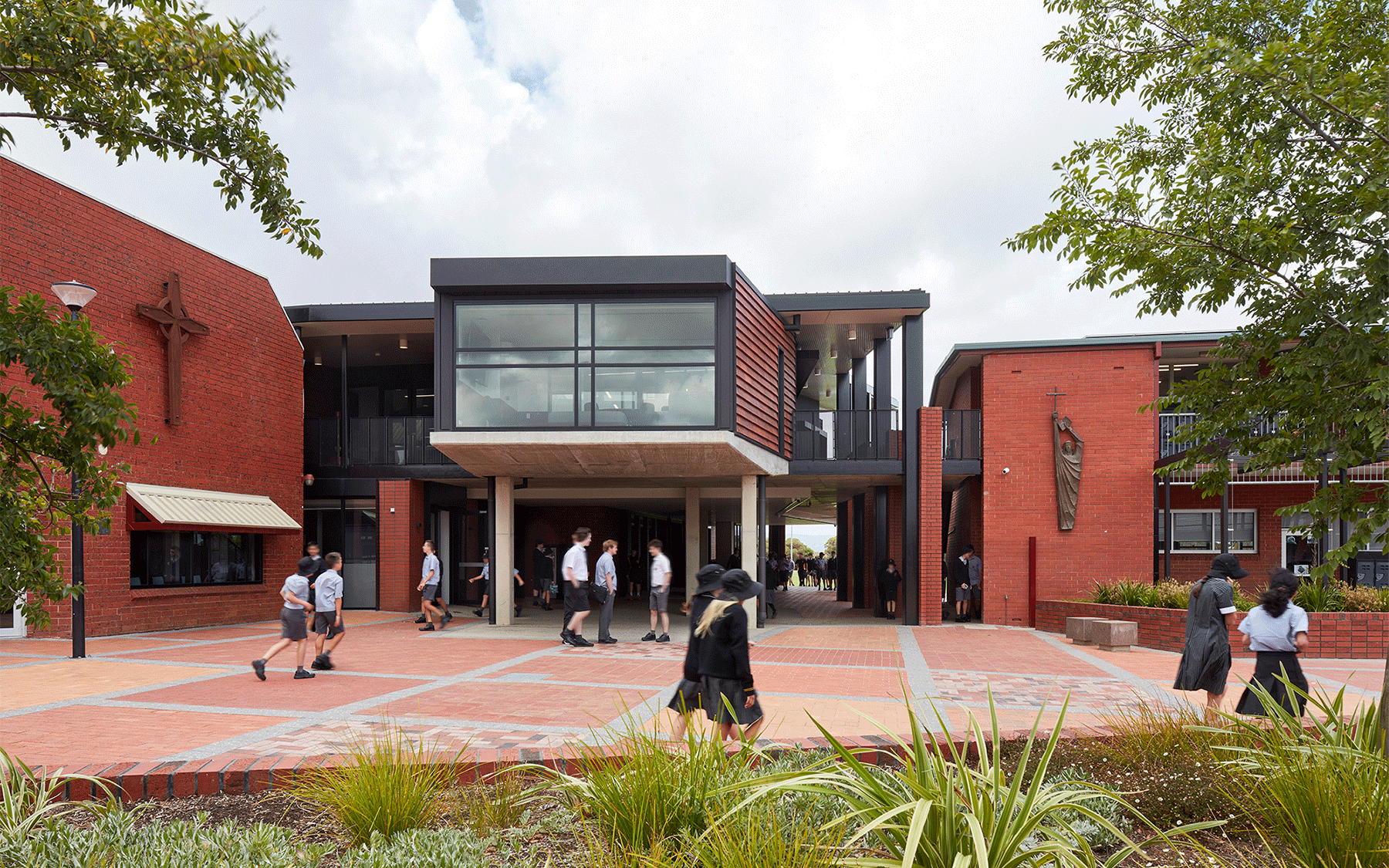Edmund Rice Tradition
St Paul's College is built on the tradition of Edmund Ignatius Rice who founded the Christian Brothers and Presentation Brothers.
Following in the tradition of Edmund Rice, St Paul's College holds a unique place in educating for liberation and possibility. In his footsteps we are an inclusive, welcoming community who is committed to faith, relationships, excellence and diversity.
Who was Edmund Rice?
Born on 1 June 1762 at Westcourt, the family tenant farm in Callan, County Kilkenny, Ireland, Edmund grew up in a relatively well-off Catholic family at a time when Ireland was under British rule and anti-Catholic Penal Laws were in force. In addition to preventing Catholics from owning land over a certain value, entering the professions or owning a weapon, the Penal Laws also prevented Catholics from attending Mass in public and from receiving an education. As a result Edmund was forced to receive his primary school education from an illegal hedge school, while his parents provided his religious education.
After receiving a limited education Edmund joined his uncle's business in providing supplies for the British Navy and Army at Waterford where he is highly respected for his fair dealings and becomes very wealthy. After his uncle's death in 1785, Edmund inherited the business and married Mary Eliot who died in 1789, not long after giving birth to their daughter. In his grief Edmund considered a religious life and devoted his life to prayer and charitable works.
During this time, he became increasingly aware of his many acquaintances' desire for Ireland to be liberated from poverty and English rule and strengthened his belief that education was essential to liberating young men from their circumstances. This led him to "abandon the ambitions of his class", sell his business and begin to instruct boys of the poor living on the streets of Waterford in a makeshift school in a converted stable in 1802.
Edmund was following the call of the Spirit into a religious life that would impact both Church and society. Along with his first couple of helpers, he provided food and clothing and education for 200 to 300 students. Inspired by the Gospel story of Jesus and deeply committed to his faith, Edmund was determined that the school be conducted according to his improvements on the best standards of the day. The curriculum was designed to help students work in business and commerce and build their prayer life and knowledge of the Bible.
The success of this school prompted the nearby construction of a permanent school, which was opened in 1803 and Christened Mount Sion. Edmund and his helpers lived at Mount Sion, which became the birthplace of the Christian Brothers. The Congregation spread as other bishops sent men to join the work and begin schools in other towns.
The opportunity to become educated changed many boys' lives.
Edmund Rice was a radical revolutionary who believed students could become agents of change. In opening the hearts and minds of boys and young men and he helped fill them with the hope that they were free to build a better life for all.
Edmund continued to be involved in Irish nationalism, helping new orders of sisters with finances and investments, temperance, works of charity involving orphans and children of alcoholic parents as well as helping slaves to escape and hide. His life became more and more about liberation, which begins with 'welcoming strangers'. He died in 1844.
Pope John Paul II beatified Edmund Rice at a ceremony in St. Peter's Square, Rome, on 6 October 1996 and he became known as Blessed Edmund Ignatius Rice. His official feast day is May 5.

